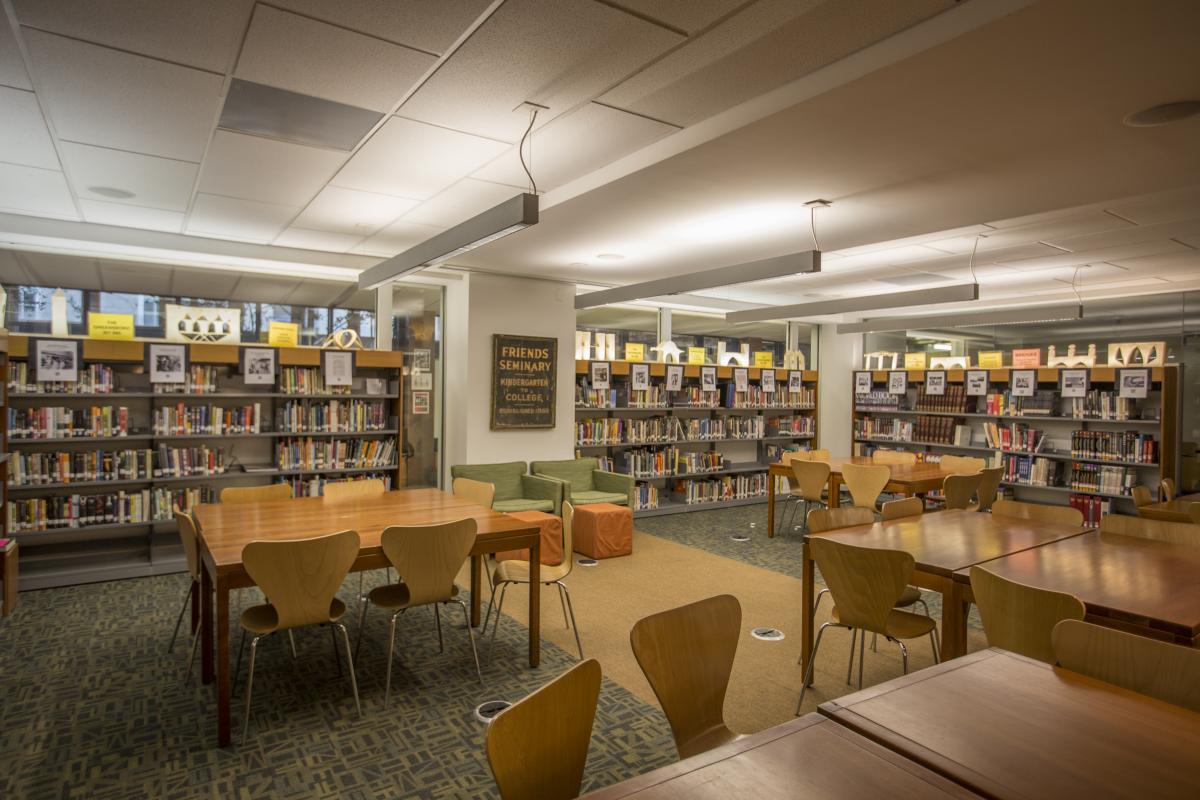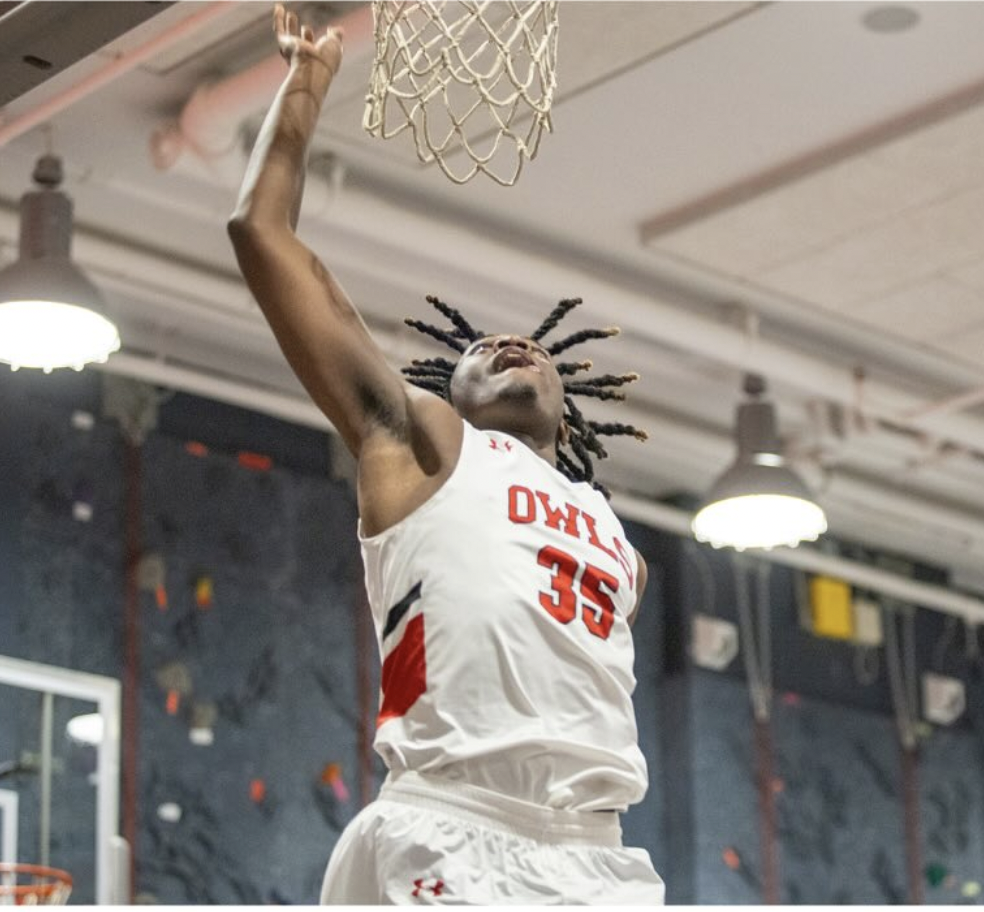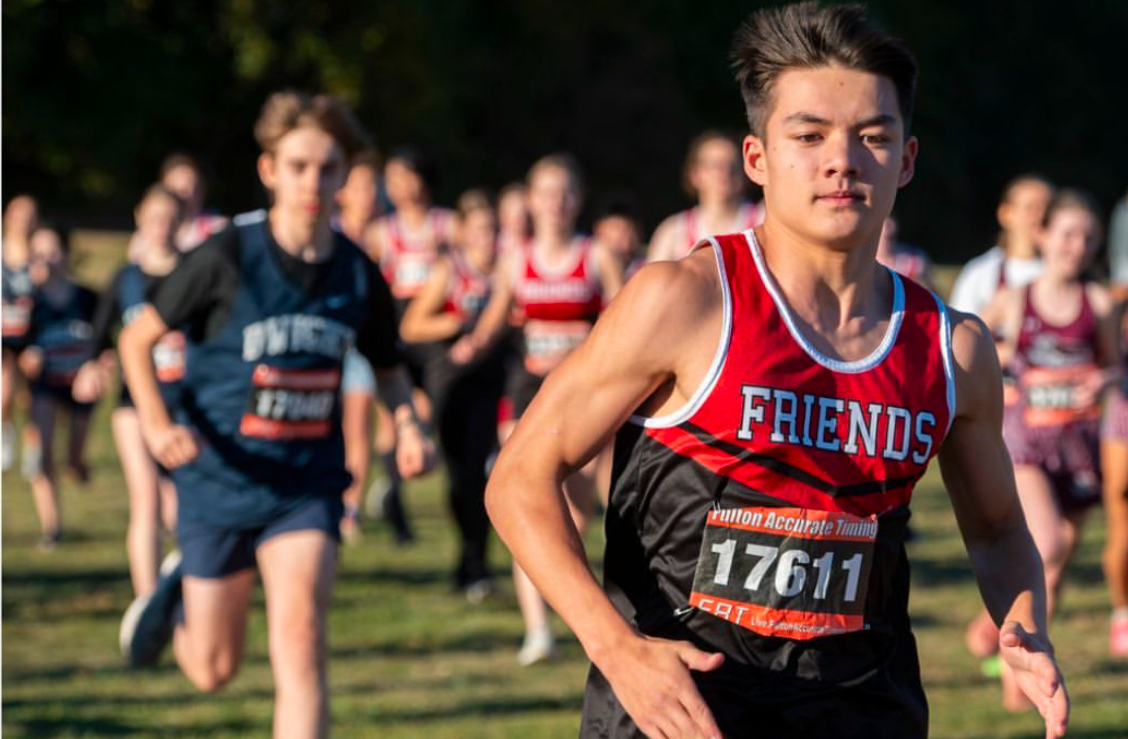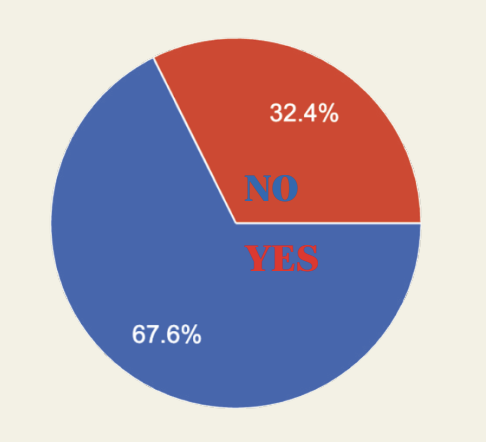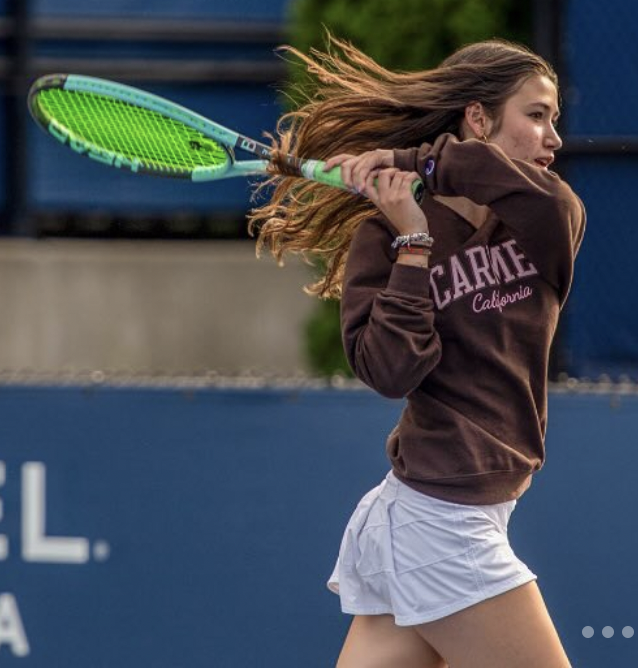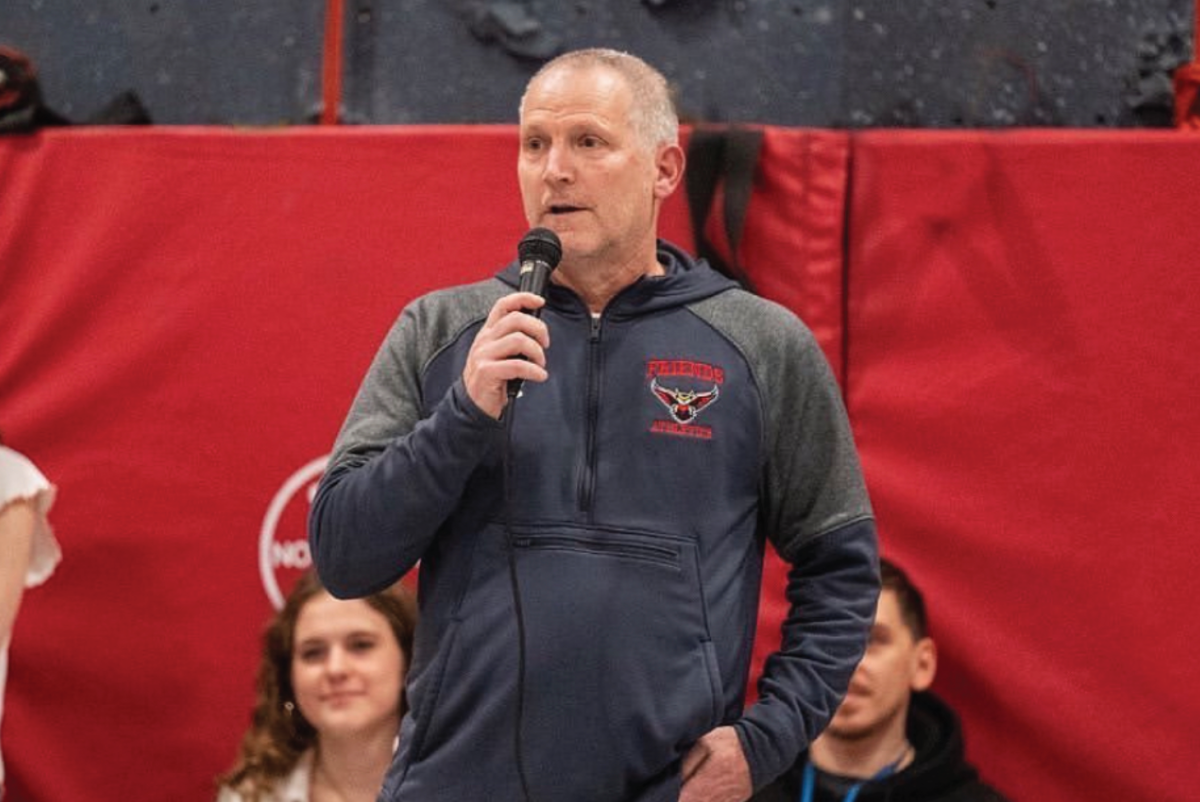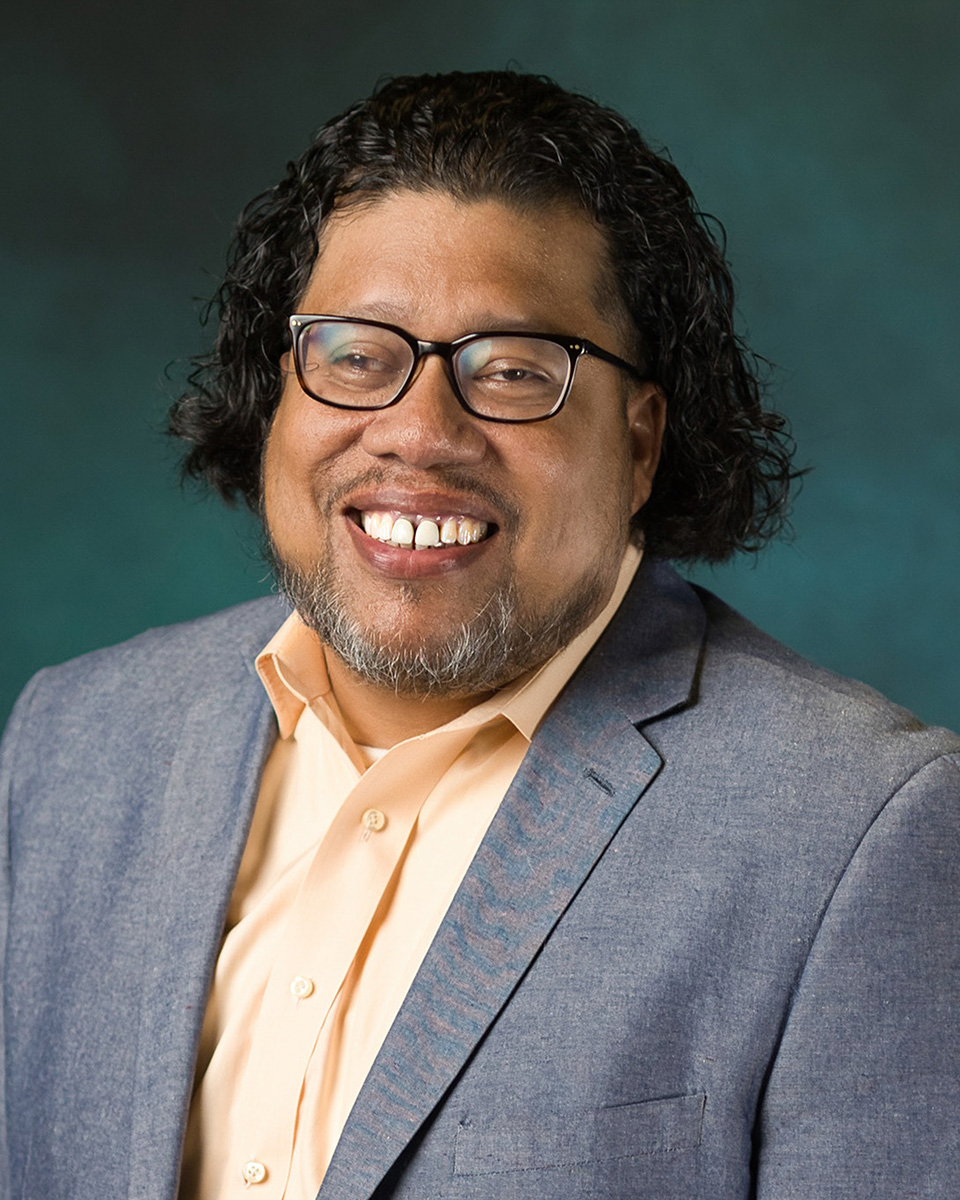With experience in a vast array of careers ranging from forestry to academic administration, Will Hopkins provides a unique perspective on teaching, technology, and learning. Hopkins is in his tenth and final year at Friends Seminary and is currently serving as Associate Head of School for Learning and Teaching. In an interview, he reflected on his time at Friends and journey to administrative work as he looks forward to directing the summer camp that fostered his love for the wilderness.
Growing up in Rochester, New York, Hopkins’s love for nature began early in his life. He described his parents as “outdoorsy” and recalled doing a lot of family hiking and camping as a child. Attending Camp Pathfinder, a summer camp in Ontario, Canada up until he was 12 years old is what truly developed Hopkins’s passion for the great outdoors. “Every summer was a wilderness adventure and so it just became a part of who I was,” he said.
Hopkins majored in environmental science in college, specializing in forestry and forest ecology because of his experiences at the summer camp and in the wilderness. After college, he began working on a PhD in forest ecology when he came to a realization about himself: “Although I loved science,” Hopkins said, “I missed the people and that field is kind of solitary,” explaining his career shift from the sciences to teaching. He left graduate school with a master’s degree, and took his first job teaching in California for four years before moving back to New York City to be closer to friends and family. After eleven years of teaching science at another school in New York, Hopkins got a taste of leadership, chairing the science department and a few committees. He found leadership roles interesting, especially the problem solving aspect. “There’s dialogue, there’s thinking together, and that was just a great fit for me,” he said. When he came across an advertisement for a job as Academic Dean at Friends Seminary, he took the opportunity.
When asked how his experience with ecology and forestry informs the way he works in administration, Hopkins explained, “what has been very helpful for me was that in doing a master’s in science, and actually doing real science…it gave me a very analytical mindset.”
Although Hopkins’s administrative work and time at Friends was valuable, he is making the shift back to wilderness programming at Camp Pathfinder. He revealed that the reason for this shift was partly because being in New York City every day felt slightly unnatural for him after living in the country for so long. He said of his chance to return to his camp,“the bottom line is that this opportunity only presented itself now and it’s an opportunity that was too good to pass up.”
When he initially made his transition from wilderness programming to the classroom, Hopkins experienced a sharp increase in the amount of digital technology used in the learning environment. He believes that our relationship to technology is a constant one that needs to be managed consciously and mindfully. “We should be thinking about what it means to learn and to learn well, and can this tool or program help us learn in ways we couldn’t do previously,” Hopkins explained about technology in the classroom. However, with the more naturalistic education of the wilderness summer camp, the distance from technology is more extreme. He describes it as “an experience that can build perspective and understanding towards that control and careful relationship with technology that we then go back to after the wilderness experience.”
Hopkins has engaged in vastly different careers throughout his professional life, accumulating valuable wisdom to impart on students trying to discover who they are and what they wish to pursue in their lives. He believes “finding a career that is fulfilling and derives happiness and life satisfaction can be a trial and error process, and that each time you try something new it should be a journey of self awareness.” Hopkins has determined that you can change paths to something new, but if you have not “taken a lesson about who you are to find the next thing,” it will likely result in “similar dissatisfactions.” To grow and evolve, you must “be learning more about yourself with everything you try.” Will Hopkin’s journey, from canoes to the classroom and back again, tells a story of seeking and finding fulfillment through the iterative process of life and learning.

